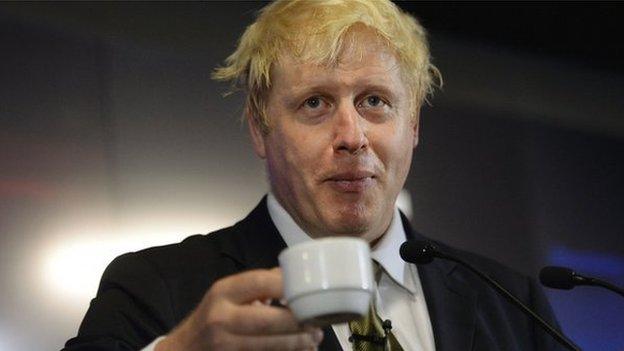Sixteen things we've learned in 16 years of the London mayoralty
- Published
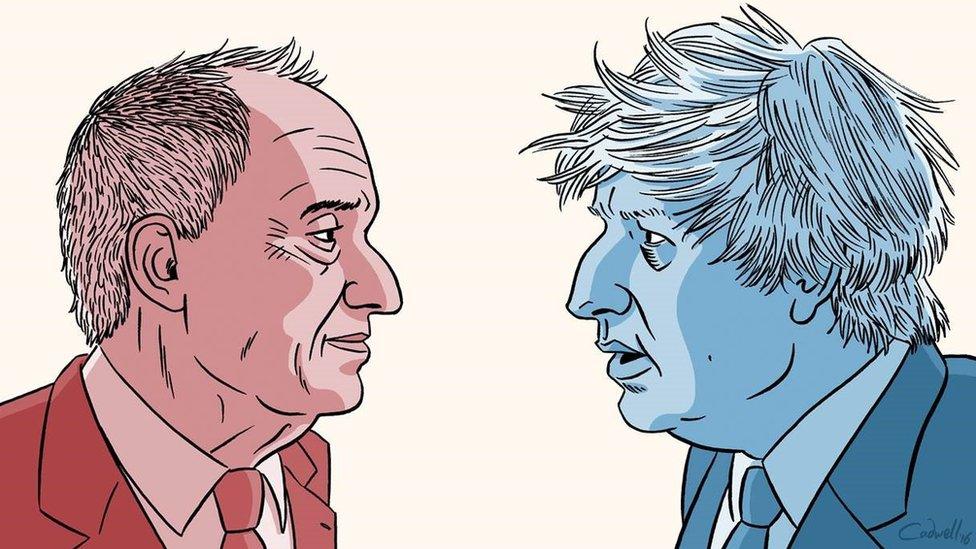
On Friday we will find out who London's third elected mayor is. Here are a few things you might have missed about the first two, which BBC Radio London found out while recording the documentary "A Tale of Two Mayors".
1. London may not have been able to cope with a third attempted terror attack in the summer of 2005
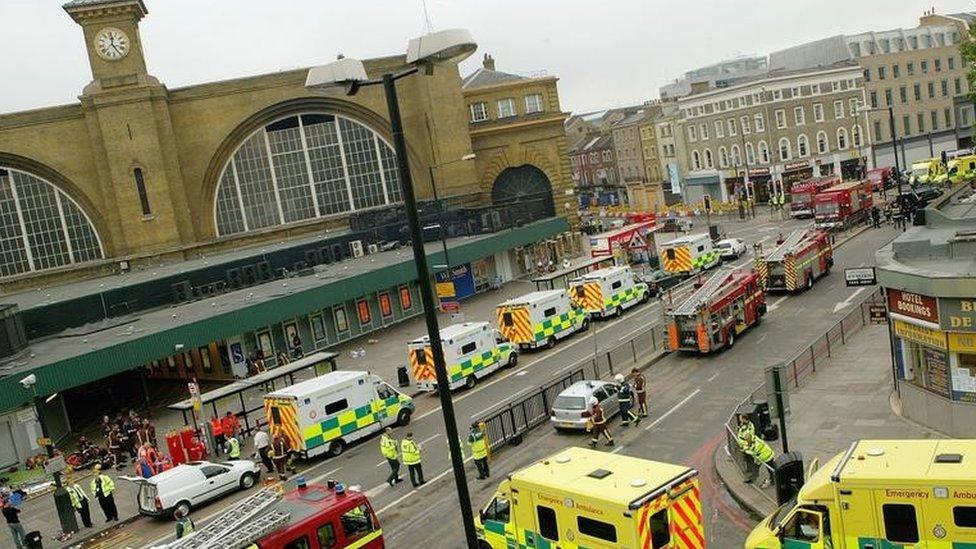
The response to the 7 July bombings at King's Cross
After the bombings of 7/7 there was a failed attack two weeks later, external. Ken Livingstone has told BBC Radio London the police were stretched to the limit, and Lord Blair, then the police commissioner, says it would have been an "extraordinary strain".
2. The spike in cycling deaths in 2011 led to a "fantastic opportunity" to improve safety
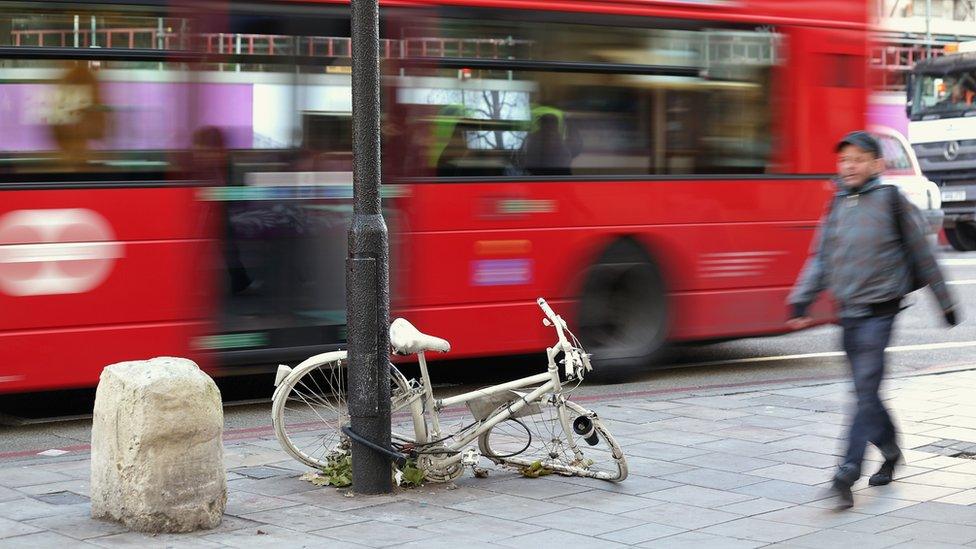
White "ghost bike" at King's Cross commemorates a cyclist's death there in 2011
Sixteen cyclists died on London's roads in 2011. In our documentary the former Deputy Mayor for Transport Isabel Dedring, uses that phrase to describe how it brought political willpower - and £1bn - to the effort to make cycling safer.
We asked her to explain how policies can be changed by events. She said: "There was a big outcry over the spate of cycling fatalities in 2011 and suddenly people's acceptance of some of those issues just changed.
"And that was a fantastic opportunity for us to create this huge cycling programme."
They ended up allocating £1bn to making cycling safer.
3. The Conservatives asked a former Met Police commissioner to be their mayoral candidate before settling on Boris Johnson
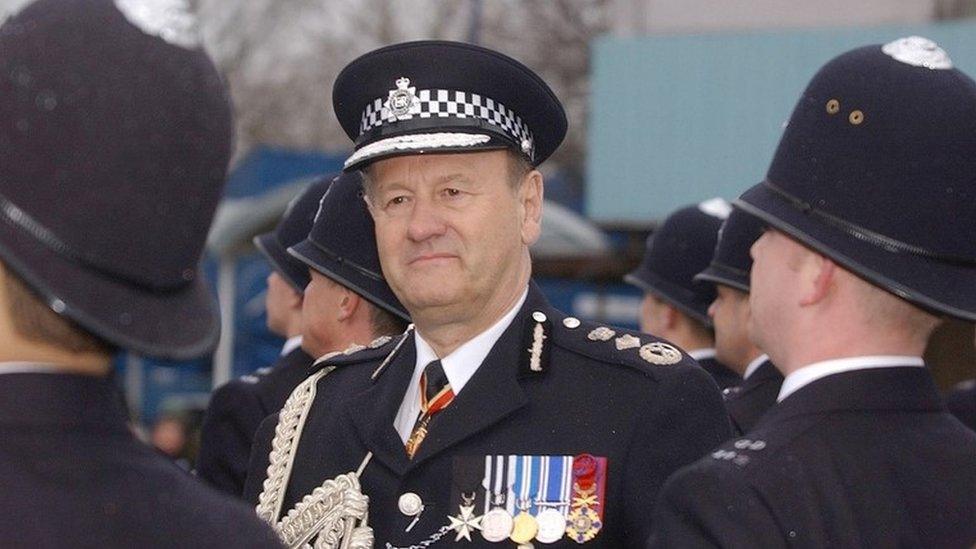
Former Met Police Commissioner Lord Stevens was tapped up as Conservative candidate for mayor
It had long been rumoured that Lord Stevens, then Sir John, was considered as the Conservative nominee for the 2008 election. He confirmed they asked him to stand before they approached Boris Johnson.
But Lord Stevens said he had no interest in being a politician for any party.
4. Ken Livingstone drinks his tea from a One Direction mug
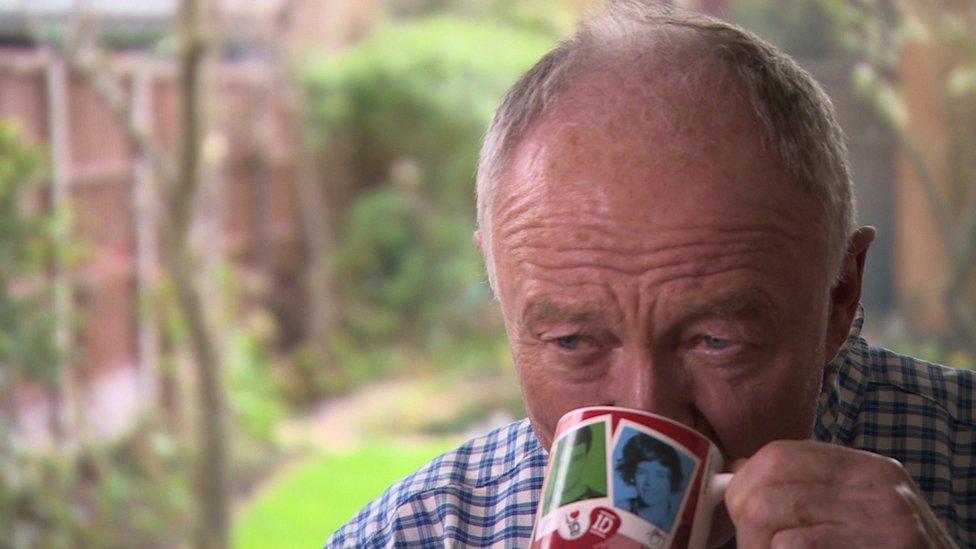
Ken Livingstone may be a One Direction fan
It may belong to his school-age daughter, but there's absolutely no proof of that (we didn't ask).
5. Boris Johnson booted out Met Commissioner Ian Blair - and Lord Blair says he still doesn't know why
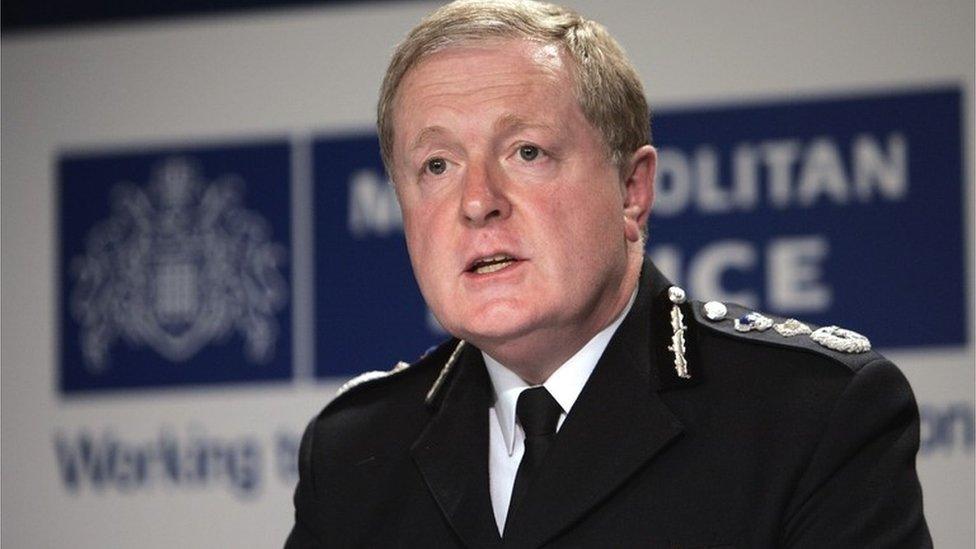
Lord Blair says the job of Met commissioner has become "deeply political"
He has told us, however, that there were absolutely no differences between the two men when it came to policing policy. Lord Blair adds the job of Met Police Commissioner has become "deeply political".
6. The man in charge of transport in London sent a "rattled" Boris Johnson a photo of people buying underwear
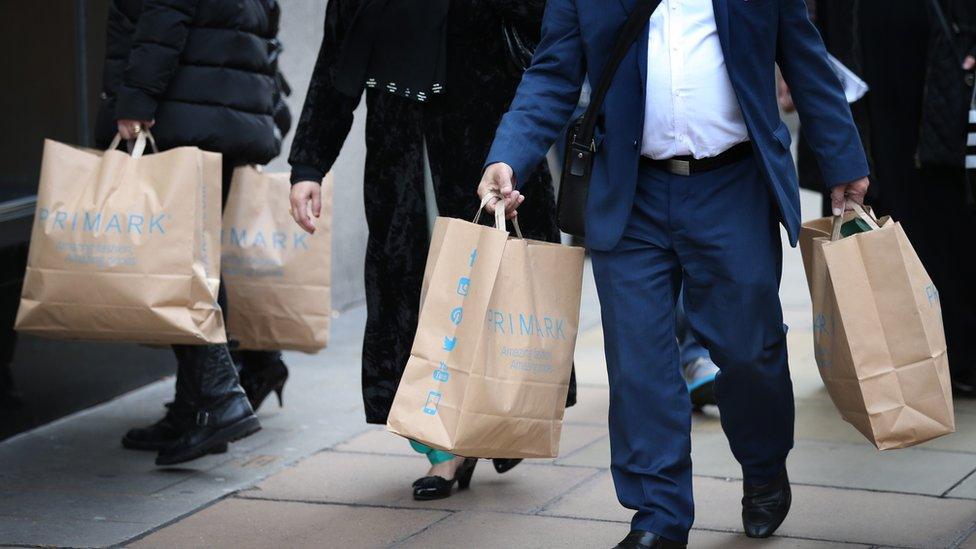
A photo of shoppers was used to prove to Boris Johnson that Oxford Street was not deserted
Sir Peter Hendy says he took a snap of shoppers in Primark on Oxford Street to prove that media reports of central London being a "ghost town" were untrue.
7. Ken Livingstone composed his speech after the London bombings of 2005 from a hotel swimming pool
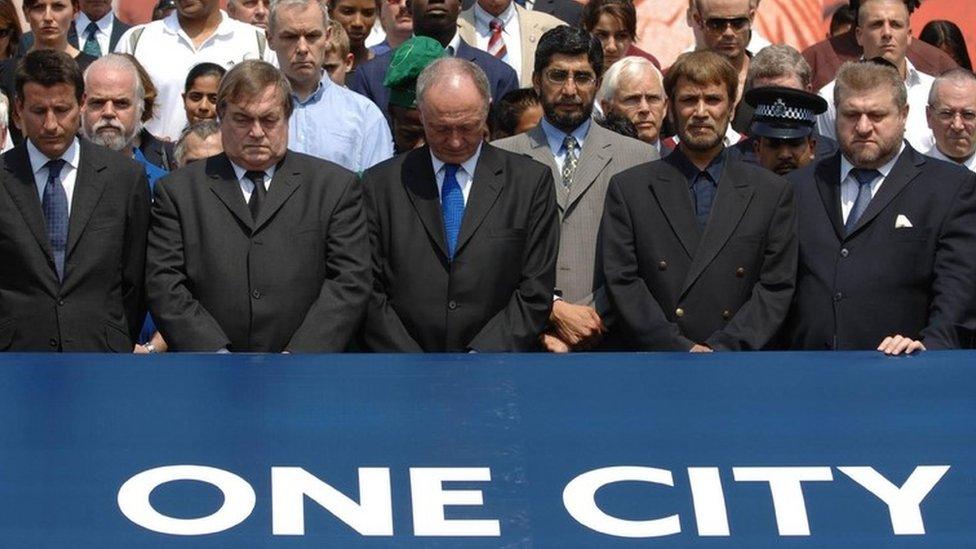
Lord Coe, Deputy Prime Minister John Prescott, Mayor of London Ken Livingstone, Imam Iqbal Siddiqui and Rabbi Jonathan Sachs side by side in Trafalgar Square on 14 July 2005
Despite having been asked by his advisers to prepare something to say should London be attacked, Mr Livingstone refused.
He only decided what to say while taking a dip at his hotel in Singapore where he was staying for the announcement of which city would host the 2012 Olympics.
8. Ken Livingstone had dinner with Boris Johnson after the 2012 Olympics and spent the whole time trying to get the Conservative to build homes for rent
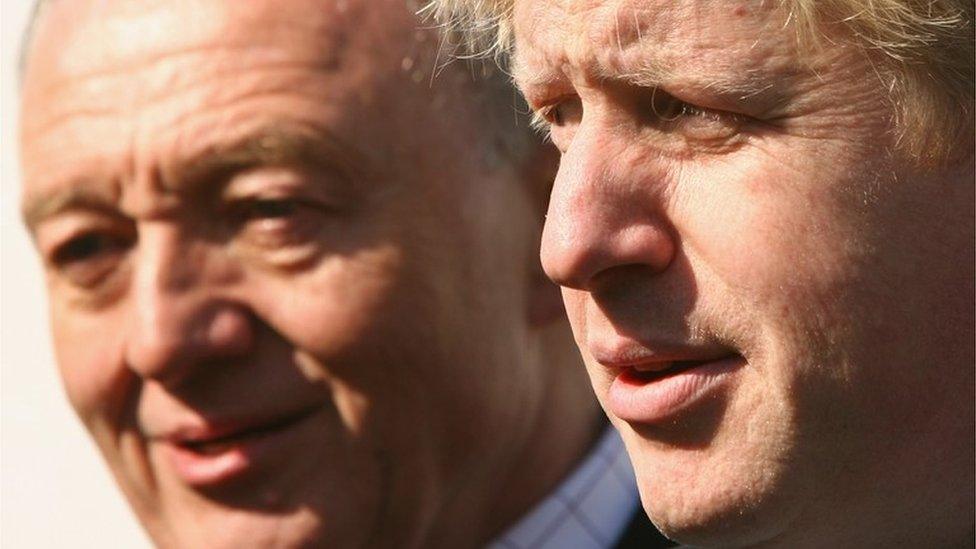
Boris and Ken talked about renting over dinner
Ken Livingstone says he would have been given £5bn by the government to build council housing if he had won that election, but claims Boris Johnson was baffled by the idea of building rental homes.
9. Boris Johnson may regret not building bridges
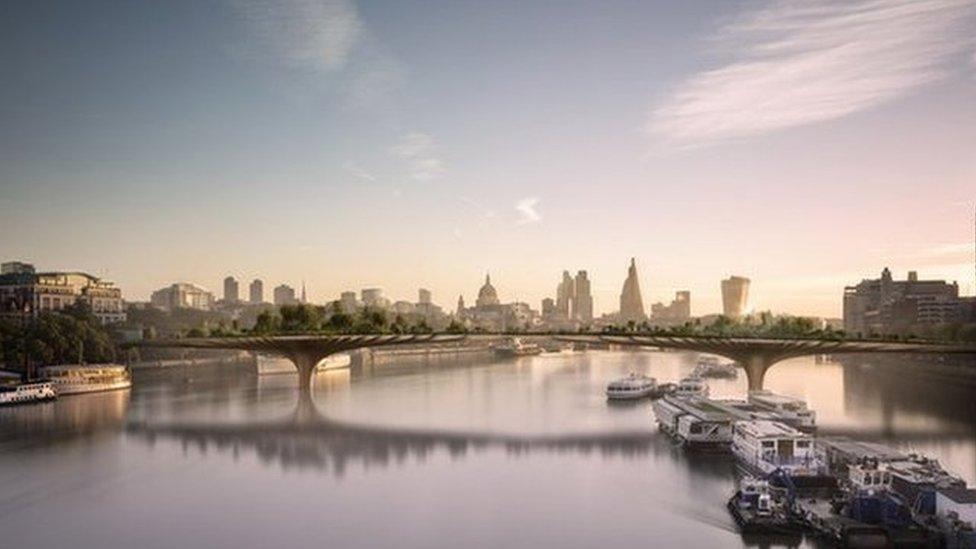
The proposed Garden Bridge may not be enough
Not a metaphor. His deputy mayor for three years, Victoria Borwick, thinks he realised too late that London needs more bridges in the east of the city.
10. Maybe mayors should make fewer promises
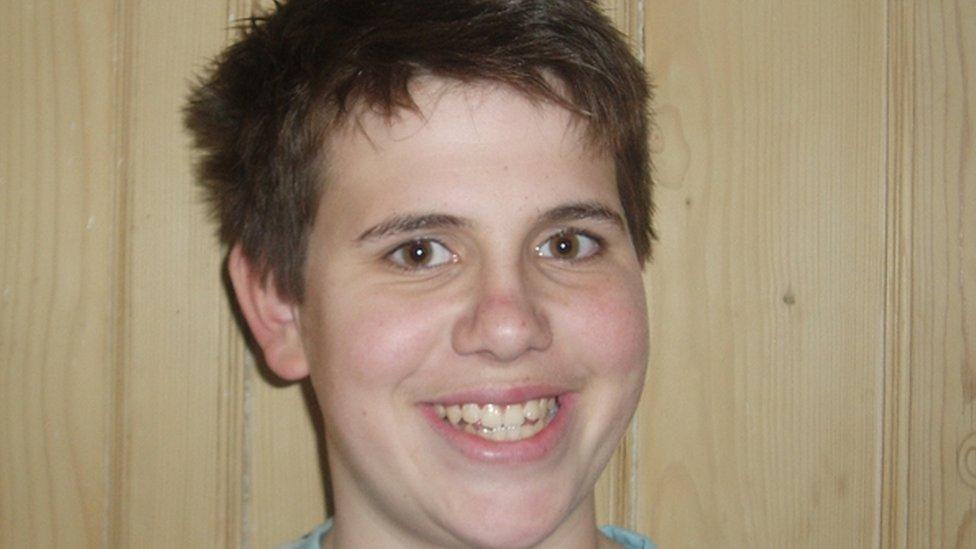
Jimmy Mizen was murdered at a bakery in south-east London in 2008
Although overall crime has fallen during Boris Johnson's time in City Hall, even senior police officers have admitted there has been a sharp rise in youth knife crime in recent years.
Barry Mizen, whose teenage son Jimmy was murdered just a week after Mr Johnson took office, wants "honesty" from politicians when it comes to tackling crime.
He feels mayors should promise less and be open about what they can't achieve. "Where is the honesty in things? I think I would have preferred it if Boris, or the next London mayor was able to say 'I cannot do this because…"
11. Former Scottish First Minister Alex Salmond thinks Scotland has done better out of devolution than London
In fact, he also thinks London is "batting on a pretty easy wicket" and being mayor would be "hard to muck-up".
Scotland's former First Minister believes because the UK parliament is based in London, mayors have a much easier job than leaders in other parts of the country in persuading the government to help them pay for big projects.
Mr Salmond told us that if he was an MP in North East England, he would be "on the barricades" over how much more money London gets to spend on transport.
12. Boris Johnson thought nothing of bothering his transport commissioner on a Sunday morning
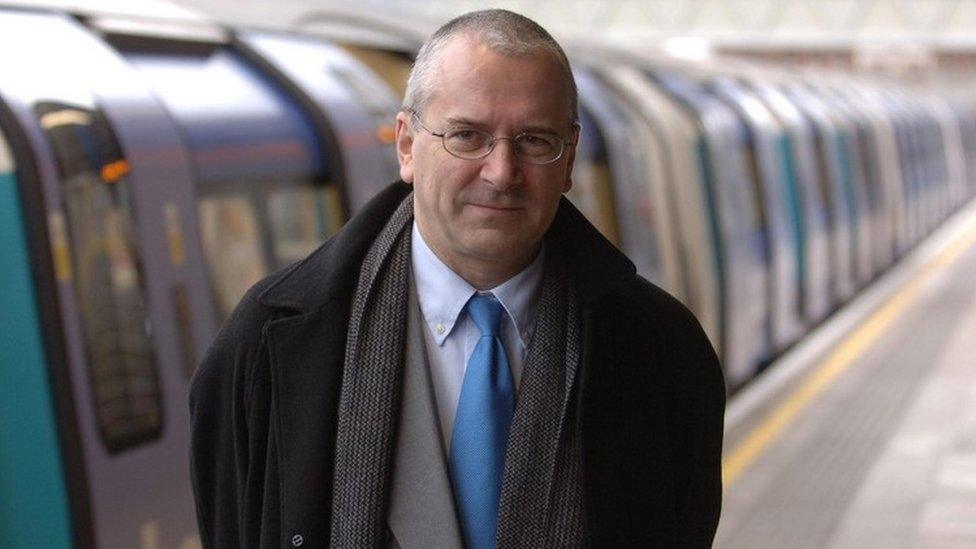
Sir Peter Hendy has been on the receiving end of Boris Johnson's enthusiasm
Sir Peter Hendy tells a story of the mayor ringing him up to complain that he had cycled past some roadworks that were left unattended. As it turned out there was a perfectly good explanation.
13. The first mayor of London doesn't think there should be a mayor of London
Ken Livingstone says: "If you want a figurehead like a mayor have them elected by the majority group.
"When I was the leader of the Greater London Council (GLC) there were 50 members of the Labour group. They were watching me, if I did anything wrong they could get rid of me.
"You're stuck with the mayor. And one day we'll get a particularly corrupt one or a completely stupid one. Much more new came out of our time on the GLC than we were able to do as mayor."
14. The Conservative mayor says technology forced him to break a pledge
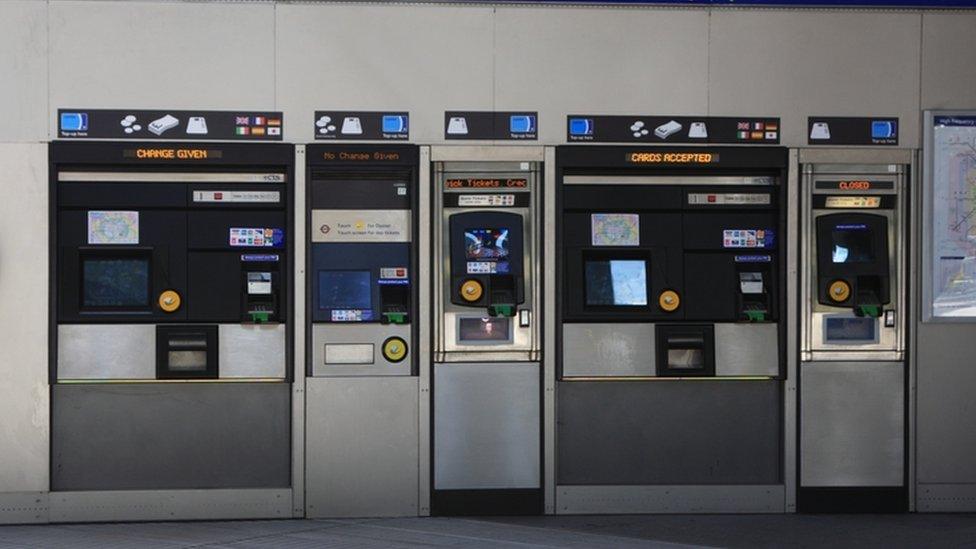
Ticket technology changed Boris Johnson's mind
Boris Johnson promised to keep London Underground ticket offices open but says he went back on that pledge because new technology made staffed windows obsolete.
15. Ken Livingstone still can't say anything nice about his successor
We gave him several chances to compliment Boris Johnson, but he wouldn't take us up on it.
16. But the man who masterminded the whole concept thinks they've both been good for London
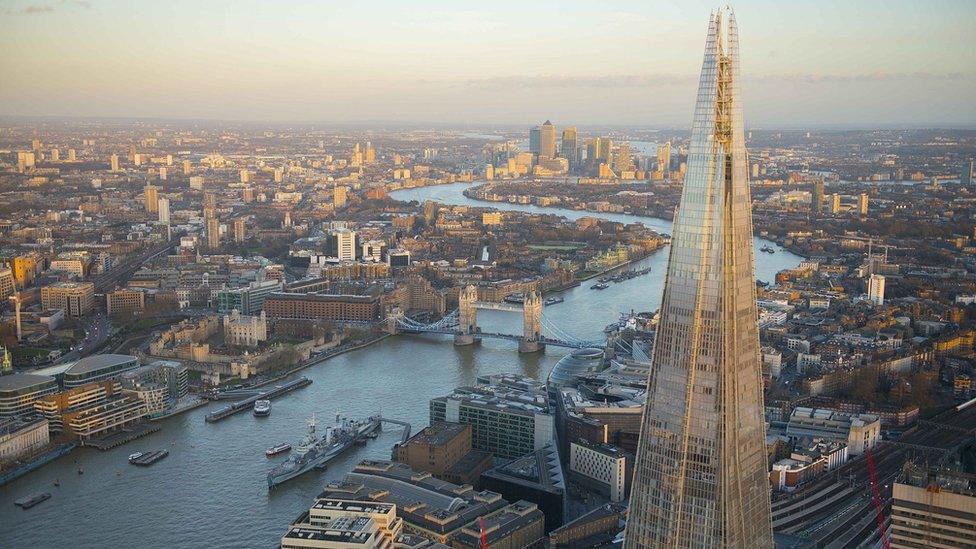
London's standing in the world has benefitted from having a mayor
Labour MP and former minister for London Nick Raynsford told us London's standing in the world has been improved by virtue of having someone to fight its corner on the international stage.
Listen to "A Tale of Two Mayors" on BBC Radio London on Friday at 16:00 BST.
- Published4 May 2016
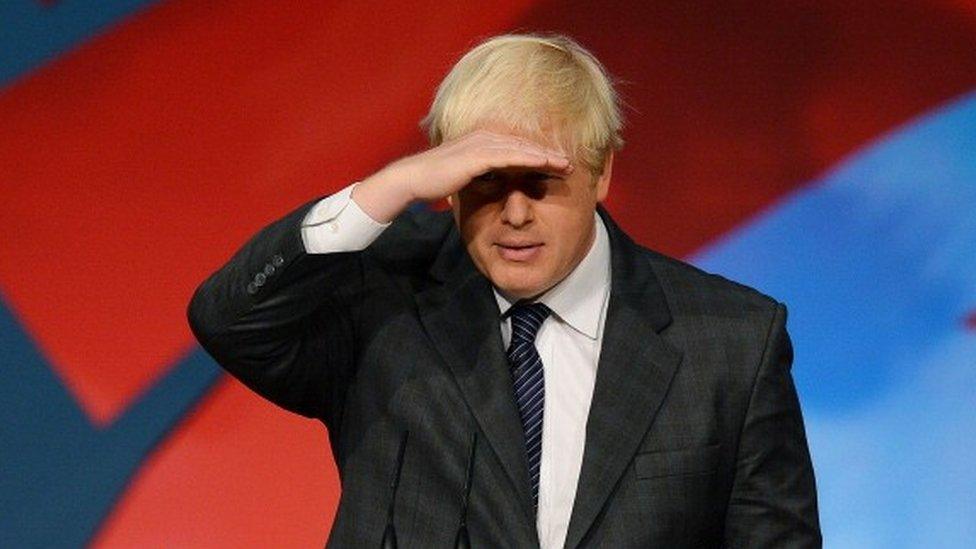
- Published21 May 2018
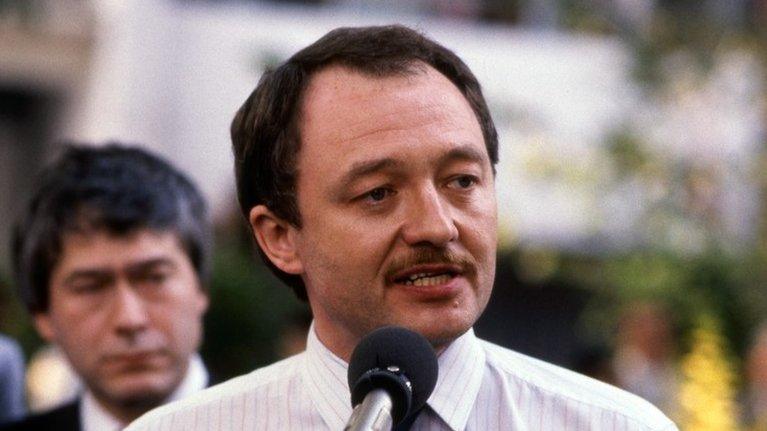
- Published31 March 2016
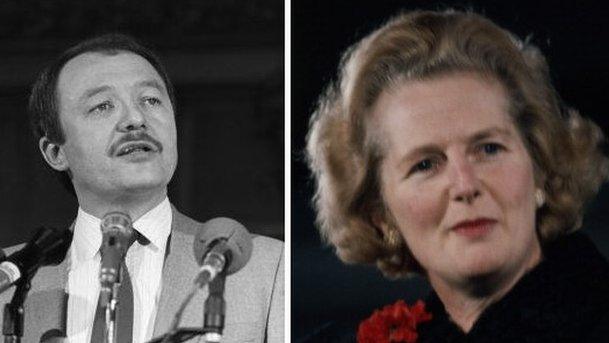
- Published6 November 2014
